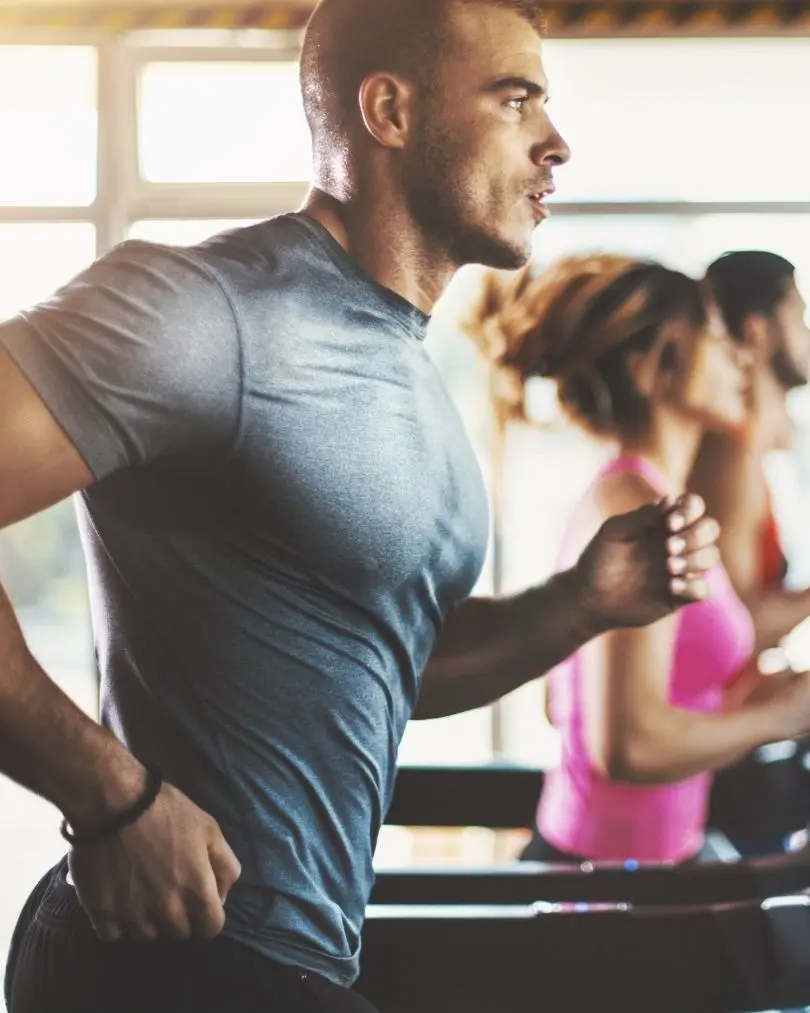Strength For Those Who Protect Us
Unlike for sport athletes, for those who answer the call – tactical athletes – there is no off-season. The people to your left and right are not just your teammates. They’re people whose lives, and whose family members’ lives, depend on you and your ability to perform.
Move Well
-Good mechanics: Good movement mechanics are essential for preventing injuries, optimizing performance, and achieving your fitness goals. They involve proper alignment, control, and coordination of your body's muscles and joints throughout a range of motion.
-Appropriate load: Using proper load is crucial for maximizing your results and minimizing the risk of injury. Appropriate load refers to the amount of weight, resistance, or intensity you apply to your muscles during your exercise or activity.
-Proper warmup: Warming up before exercise is essential for preparing your body for physical activity and reducing the risk of injury. It helps to gradually increase your heart rate, blood flow, and muscle temperature, allowing your muscles to contract and relax more efficiently. A proper warm-up should also improve your flexibility and range of motion.
Move Often
-Resistance training: Resistance training, also known as strength training, is a form of exercise that involves using resistance to build muscle strength and endurance. It is an essential part of a well-rounded fitness program, as it offers a wide range of benefits for both physical and mental health. The benefits include: Incrase muscle mass and strength. Weight management. Improved bone density. Reduced risk of chronic disease. Improved mental health. Improved sleep.
-Cardiovascular training: Cardiovascular training, also known as cardio exercise, is any type of physical activity that gets your heart rate up and makes you breathe harder. It is an important part of a healthy lifestyle, and it also has numerous benefits.
-Mobility training: Mobility training is a type of exercise that focuses on improving your range of motion, flexibility, and joint health. It is an important part of a well-rounded fitness program, as it can help to improve your performance in other activities, reduce your risk of injury, and reduce pain.

Nutrition
-Eat mostly whole, unprocessed or minimally-processed foods. Whole, unprocessed, and minimally processed foods are foods that have been minimally altered from their natural state. They are typically nutrient-rich and contain a variety of vitamins, minerals, and antioxidants.
-Prioritize lean protein. Lean protein is an essential part of a healthy diet. It helps to build and repair muscle tissue, and it can also help to boost your metabolism and keep you feeling full. Lean protein is also a good source of essential nutrients, such as iron and zinc.
-Minimize added sugar. The term "added sugar" refers to any sugar or syrup that is added to a food or beverage during processing or preparation, either at the factory or at home. This includes sugars such as sucrose, fructose, glucose, dextrose, lactose, maltose, and high-fructose corn syrup. Added sugars are not the same as naturally occurring sugars found in fruits, vegetables, and milk.
Hydration
-The daily minimum to stay hydrated is roughly 1/2 your bodyweight (in pounds) in ounces of water.
-Drink water when you're in more extreme conditions (heat/cold), when you're sweating excessively, or during long-duration exercises.
-Begin your workouts adequately hydrated and hydrate throughout the training session.
Media
-What you consume from the news, TV, streams, and social media can negatively affect your psychological health, and in turn, affect your physiological (physical) health. If you find yourself becoming angry, depressed, or unsettled while taking part in any of these activities, consider reducing your exposure to them or shifting your mindset.
Relationships
-Friends, family, and colleagues can be assets or liabilities in your life. Choose your exposure wisely.
-The culture and climate of your work environment is important. Everyone contributes to the culture and climate.

Sleep
Quality: Sleep quality is crucial for maintaining overall health and well-being. While the amount of sleep you get is important, the quality of your sleep is equally essential. When you don't get enough restful, quality sleep, your body and mind cannot function optimally, leading to a range of negative consequences.
Quantity: Sleep quantity, also known as sleep duration, refers to the total amount of time you spend sleeping each night. It is an essential aspect of overall health and well-being, playing a crucial role in both physical and mental functioning. The recommended amount of sleep varies depending on age. Adults generally need around 7-8 hours of sleep per night.
Consistency: Sleep consistency refers to the regularity of your sleep patterns, including going to bed and waking up at the same time each day, even on weekends. It is an essential component of maintaining good sleep quality and reaping the benefits of adequate sleep.
Hygiene: Sleep hygiene refers to the practices and habits that promote restful sleep and help you achieve optimal sleep quality. It encompasses various aspects of your lifestyle, including your sleep schedule, bedtime routine, sleep environment, and daytime behaviors.
Heat & Cold Exposure
Sunlight Exposure & Darkness
Active Recovery
Meditation / Breathwork
Meditation is a powerful practice that offers a range of benefits for both physical and mental health. It helps to reduce stress, improve emotional regulation, enhance focus and concentration, increase self-awareness, and reduce anxiety and depression. Meditation provides a framework for focusing the mind and reducing distractions.
Breathwork is another powerful practice that also offers a lot of benefits for both physical and mental health. It helps to reduce stress and anxiety, improve heart rate variability (HRV), enhance oxygen delivery, reduce blood pressure, and improve sleep quality. Breathwork techniques offer a powerful tool to influence the body’s stress response.

Stress Management
Nervous System Regulation
Breathing itself is involuntary, but how we breathe is in our conscious control. Our breath goes with us everywhere we go, and knowing how to manipulate it to alter the state of our nervous system (either up or down) allows us to shift the state of our mind and body within minutes, or even seconds.
There are many known breathing techniques that can either up-regulate or down-regulate the nervous system, depending on what is needed for the activity or situation at hand.
Making your exhales longer than your inhales will down-regulate your nervous system, bringing about a state of calmness and relaxation. Making your inhales longer than your exhales will up-regulate your system, bringing about a state of alertness and focus.
Keep this in mind anytime you need to “shift gears” as you move between two different scenarios that require different types of nervous energy (e.g. finishing a stressful 24-hour shift and then going back home to your family)
Immunity
Breathing is a necessary funtion of the human body and is not the same as breathwork.
Breathwork, which are intentional and mindful breathing techniques, can strengthen the immune system by reducing stress, improving oxygen delivery, boosting nitric oxide production, enhancing lymphatic flow, strengthening the diaphragm, activating the vagus nerve, reducing upper respiratory infections, improving sleep quality, increasing mindfulness, and enhancing overall well-being. Incorporating breathwork techniques into your daily routine can be a simple and effective way to boost your immune system and support overall health and well-being.
Mental & Physical Health
We already mentioned the many benefits of intentional breathwork. It wouildn't hurt to go over them again as it pertains to mental and physical health.
Breathwork effectively activates the parasympathetic nervous system, reducing blood pressure, muscle tension, and anxiety. It can also enhance emotional regulation, increase cognitive function, and promote mindfulness. Breathwork techniques can also lower blood pressure, improve HRV, enhance oxygen delivery, reduce muscle tension, and promote better sleep.

"In the face of danger and uncertainty, a strong body and mind are your unwavering allies. Nurture your fitness, for it is the shield that protects you and the weapon that serves your community."

